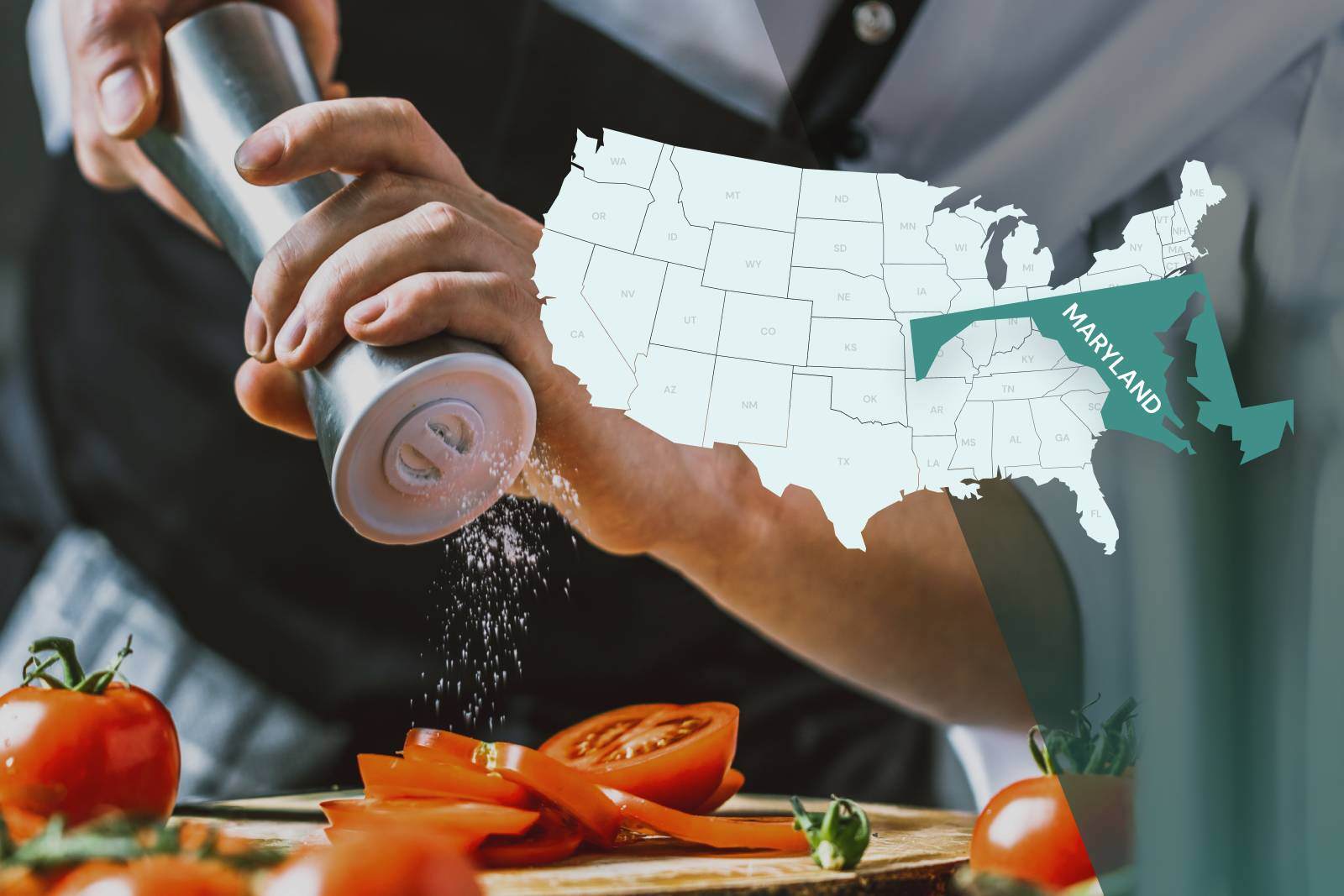If you work in the food industry in Maryland, you know the crab dishes on your menu are one of your menu's highlights. However, it may be less clear what food safety training and certification requirements apply to your work.
Maryland, like many other states, uses the U.S. Food and Drug Administration’s (FDA) Food Code as the foundation of the Department of Health and Mental Hygiene’s regulations.1,2
In this blog, we’ll cover the major regulations and requirements you need to know, including:
Which version of the FDA Food Code does Maryland use?
Does Maryland require food handler training?
Does Maryland require allergen awareness training?
Does Maryland require food manager certification?
Which counties and cities require food service managers in Maryland?
Which version of the FDA Food Code does Maryland use?
The Maryland Department of Health and Mental Hygiene used the recommendations from the 2009 FDA Food Code to create statewide guidelines.1,2
However, many local jurisdictions in Maryland have implemented more strict regulations than the statewide requirements.
Does Maryland require food handler training?
No, food handler training is not a requirement in Maryland. However, your employer or local jurisdiction may have other requirements.
Does Maryland require allergen awareness training?
Food allergen awareness training is not a statewide requirement in Maryland. However, Montgomery County requires foodservice establishments to have someone onsite during food preparation and service who has completed a food allergy course and passed its assessment or exam.
Whether or not it is required, this training may be in your best interest because food allergies like fish and shellfish allergies are becoming more common! It can save you, your customers, and your establishment from the consequences of dangerous allergic reactions.
Does Maryland require food manager certification?
No, there are no statewide requirements for food manager certification in Maryland. However, several counties and cities do require managers to earn a certification.
What Maryland counties and cities require food manager certification?
Maryland’s statewide regulations are based on an older version of the FDA Food Code. Several counties, and one city, have taken it upon themselves to update their requirements in the name of food safety.
Many of these locations refer to “ANSI” or “ANAB.” Don’t be confused by these acronyms! Providers used to receive their accreditation directly from the American National Standards Institute (ANSI). Today, the ANSI National Accreditation Board (ANAB), a nonprofit subsidiary of ANSI, oversees the accreditation status of training and certification providers.
Let’s dig into these local requirements.
Baltimore City food safety certification requirements
The Health Code of Baltimore City requires each high-priority and moderate priority foodservice facility to employ a foodservice manager who has taken an ANAB-approved course, passed an exam, and filled out a Baltimore City Health Department application.3, 4
Individuals must earn their certification within 90 days of employment. New applicants must take a 16-hour training course, while managers renewing their credentials can take an eight-hour course.
Certified food protection manager credentials are valid for three years in Baltimore.
Baltimore County food safety certification requirements
Baltimore County requires each medium and high-priority facility to have a certified foodservice manager onsite during all hours of operation.5
Baltimore County has approved ten providers to administer certification exams for food managers, including Trust20’s ANAB-CFP accredited certification program.
Certified food protection manager credentials are valid for three years in Baltimore County.
Howard County food safety certification requirements
Howard County requires establishments to employ a certified food protection manager. The county’s Food Protection program requires that every three years, managers must take an approved training and exam and fill out a Certified Food Manager Application.6,7
Montgomery County food safety requirements
Montgomery County requires foodservice facilities to be under the immediate control of a certified foodservice manager.8
The Montgomery County Department of Health and Human Services requires managers to successfully complete an approved course, pass an approved exam, and file a Certified Food Service Manager License Application.8
County-issued identification cards are valid for three years.
Individuals can take their training online or in person; however, it is important to note that Montgomery County only accepts test results from proctored exams taken in person.
They will not accept online certification credentials.
Prince George’s County food safety requirements
Prince George County requires foodservice facilities to have a foodservice manager on duty at all times. Managers must pass an ANAB-CFP accredited exam to earn their certification and then submit an application through the county’s portal.9
The takeaway
While training and certification are not a statewide requirement in Maryland, many local jurisdictions have implemented more strict regulations to protect public health. Without training requirements for food handlers, certified food protection managers are wholly responsible for ensuring their establishments maintain a positive food safety culture. If you’re considering a jump into foodservice management in Maryland, a manager certification is the right place to start!
Sources
-
FDA: 2009 FDA Food Code
- Library of Maryland Regulations: 15
-
Baltimore: The Health Code of Baltimore City
-
Baltimore: Manager Application
-
Baltimore County: Certified Food Service Manager Training
-
Howard County: Certified Food Manager Application
-
Howard County: Food Protection Program
-
Montgomery County Health and Human Services: Certified Food Service Manager License Application
-
Prince George’s County: Food Service Manager Certification






-1.png)
.png)
